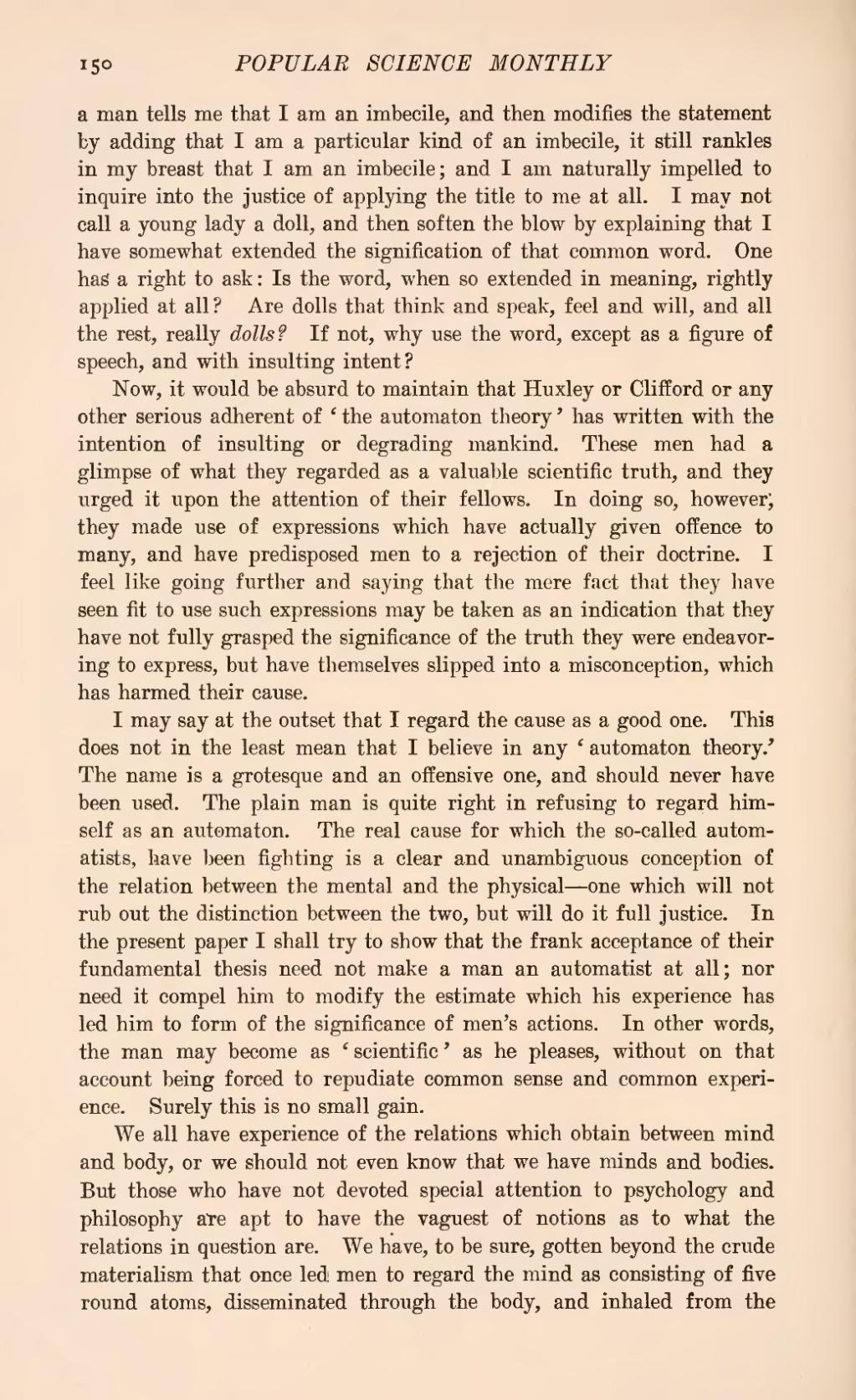a man tells me that I am an imbecile, and then modifies the statement by adding that I am a particular kind of an imbecile, it still rankles in my breast that I am an imbecile; and I am naturally impelled to inquire into the justice of applying the title to me at all. I may not call a young lady a doll, and then soften the blow by explaining that I have somewhat extended the signification of that common word. One has" a right to ask: Is the word, when so extended in meaning, rightly applied at all? Are dolls that think and speak, feel and will, and all the rest, really dolls? If not, why use the word, except as a figure of speech, and with insulting intent?
Now, it would be absurd to maintain that Huxley or Clifford or any other serious adherent of 'the automaton theory' has written with the intention of insulting or degrading mankind. These men had a glimpse of what they regarded as a valuable scientific truth, and they urged it upon the attention of their fellows. In doing so, however; they made use of expressions which have actually given offence to many, and have predisposed men to a rejection of their doctrine. I feel like going further and saying that the mere fact that they have seen fit to use such expressions may be taken as an indication that they have not fully grasped the significance of the truth they were endeavoring to express, but have themselves slipped into a misconception, which has harmed their cause.
I may say at the outset that I regard the cause as a good one. This does not in the least mean that I believe in any 'automaton theory,' The name is a grotesque and an offensive one, and should never have been used. The plain man is quite right in refusing to regard himself as an automaton. The real cause for which the so-called automatists, have been fighting is a clear and unambiguous conception of the relation between the mental and the physical—one which will not rub out the distinction between the two, but will do it full justice. In the present paper I shall try to show that the frank acceptance of their fundamental thesis need not make a man an automatist at all; nor need it compel him to modify the estimate which his experience has led him to form of the significance of men's actions. In other words, the man may become as 'scientific' as he pleases, without on that account being forced to repudiate common sense and common experience. Surely this is no small gain.
We all have experience of the relations which obtain between mind and body, or we should not even know that we have minds and bodies. But those who have not devoted special attention to psychology and philosophy are apt to have the vaguest of notions as to what the relations in question are. We have, to be sure, gotten beyond the crude materialism that once led men to regard the mind as consisting of five round atoms, disseminated through the body, and inhaled from the
